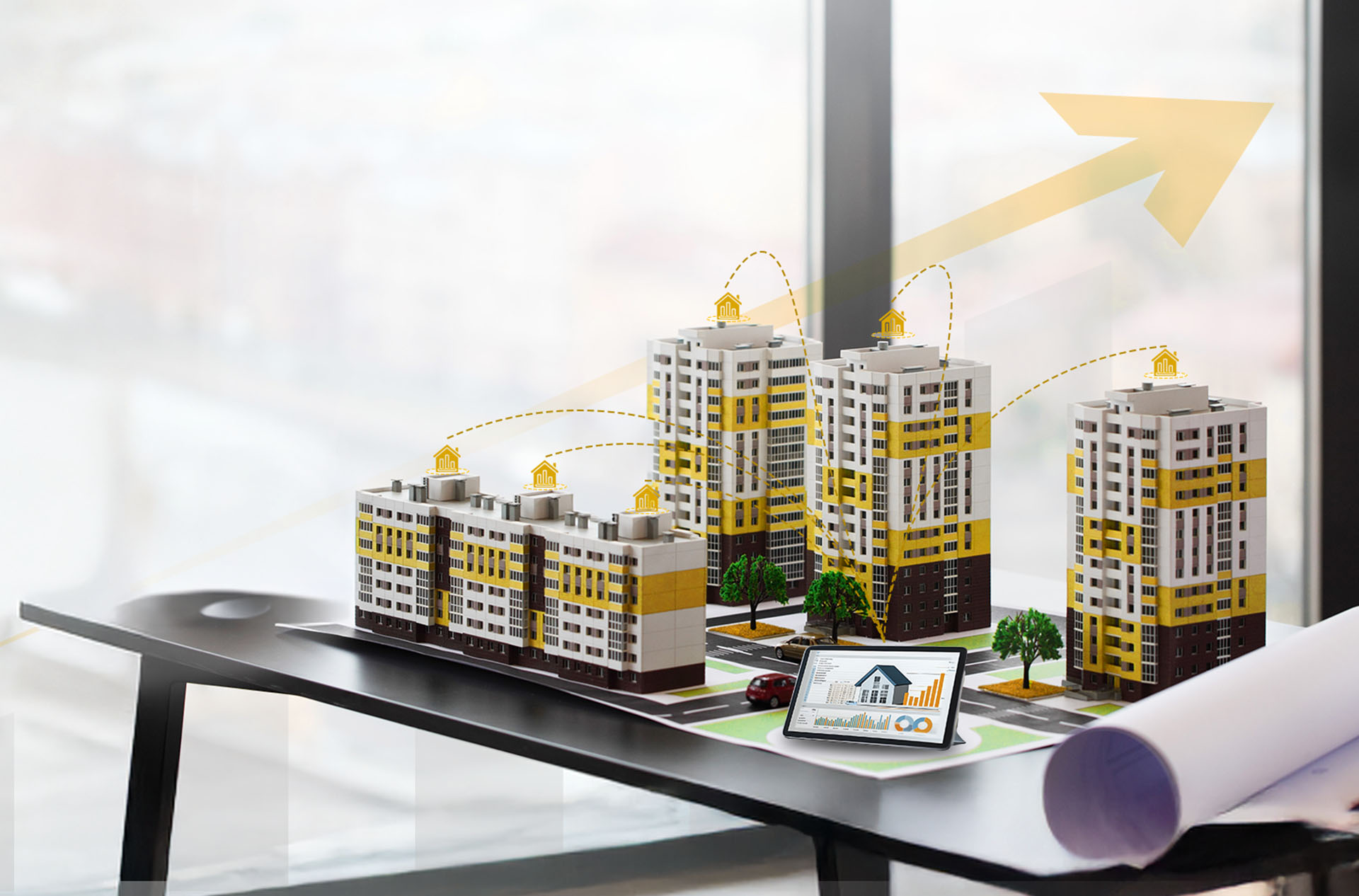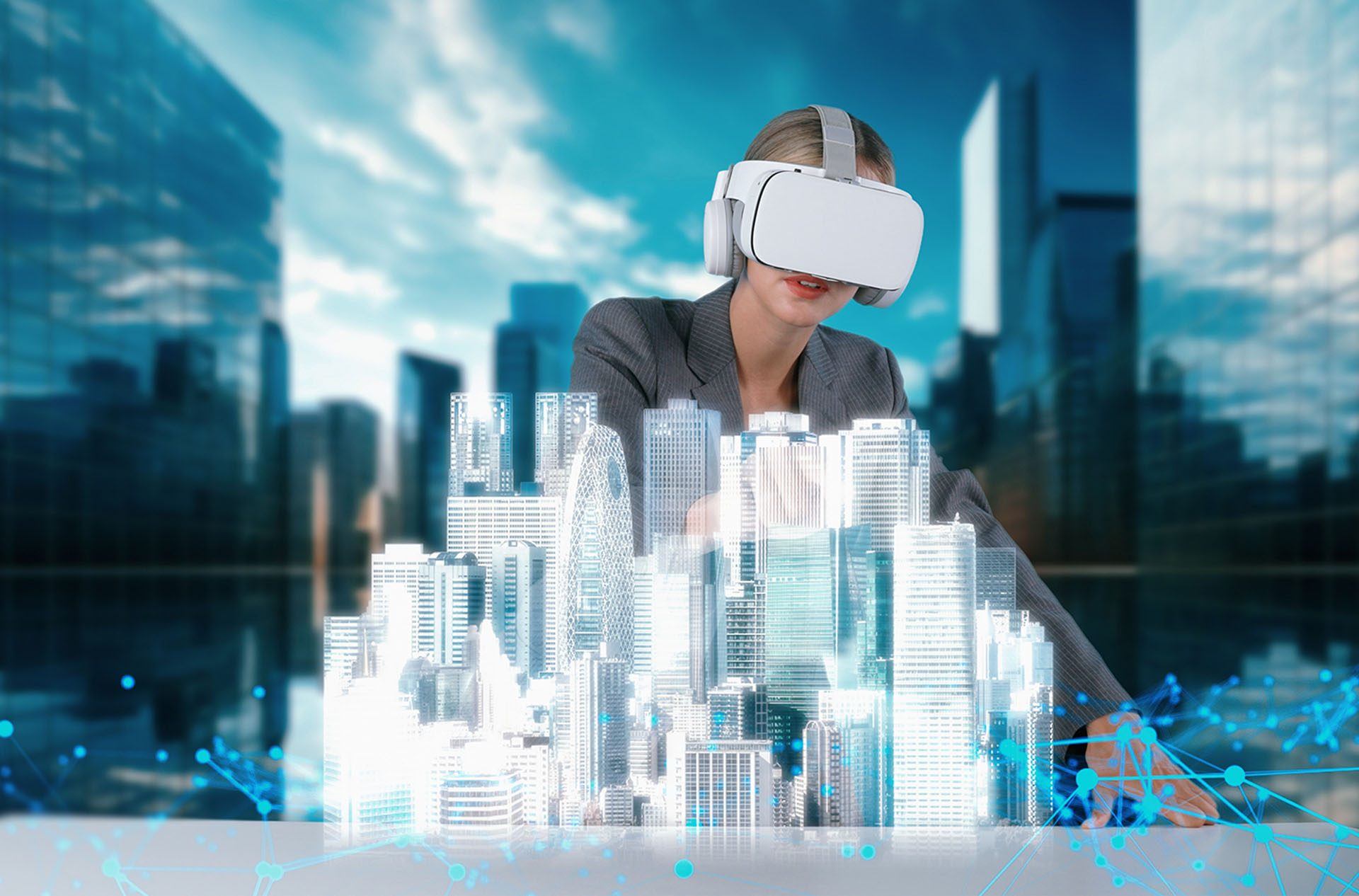


The MENA region is witnessing a transformative era in its real estate sector. Historically, the region has been a nexus of architectural marvels and urban development. Today, as cities like Dubai, Riyadh, and Doha experience rapid growth, there's an underlying technological revolution shaping this expansion. This change isn't just about constructing taller buildings or sprawling communities; it's about leveraging Artificial Intelligence (AI) to make real estate development smarter, more efficient, and tailored to the needs of its residents.
The transformation of urban spaces in the MENA region is nothing short of remarkable. Cities are not just growing; they're evolving with a vision that marries tradition with innovation. Take, for instance, the concept of smart cities. Dubai's smart traffic systems, which utilize AI to predict congestion and optimize traffic flow, are not just about reducing travel time. Similarly, Riyadh's initiatives to automate public services are a testament to the city's dedication to efficiency and user-centric design. These initiatives are more than just technological upgrades; they symbolize a shift in how cities view their responsibilities to their inhabitants. As these urban centers continue to harness the power of technology, it's evident that AI's influence is permeating deeper into the real estate sector, shaping the future of urban living in the MENA region.
The role of AI in the MENA real estate landscape is becoming increasingly pivotal. Beyond city-wide initiatives, individual property developers and real estate agencies are leveraging AI to enhance their operations and customer experiences. For instance, AI-driven analytics tools are being employed to provide investors with insights into market trends, helping them make informed decisions. Property listings are now being augmented with virtual tours, powered by AI, offering potential buyers a more immersive experience. Additionally, AI chatbots are revolutionizing customer service in the real estate sector, providing instant responses to queries and streamlining the property search process. As AI continues to make its mark, the MENA real estate industry stands at the cusp of a new era, where technology and human-centric design converge to redefine the property landscape.
The integration of AI in urban development goes beyond individual properties and extends to the creation of entire communities. In the MENA region, there's a growing emphasis on developing sustainable and smart urban spaces. For example, neighbourhoods are being designed with AI-driven systems that optimize energy consumption, ensuring that homes remain cool during the hot months while minimizing energy use. Public spaces are being equipped with sensors and AI algorithms to monitor and manage waste, water usage, and even greenery, ensuring a sustainable environment for residents. These smart urban spaces are not just about technology; they're about creating communities where residents can enjoy a high quality of life, surrounded by green spaces, efficient public services, and state-of-the-art amenities.
While the potential of AI in shaping the future of real estate in the MENA region is vast, it's essential to recognize the challenges that lie ahead. Data privacy remains a significant concern, ensuring that the vast amounts of data used by AI systems are protected and not misused. There's also the challenge of ensuring that as technology becomes more integrated into real estate, it remains accessible to all, preventing a digital divide. Training professionals to understand and harness the power of AI is crucial to ensure that the technology is used effectively and ethically. However, with the collaborative spirit seen in the MENA region and the dedication to continuous innovation, there's optimism that these challenges will be addressed, paving the way for a brighter, smarter future for real estate.
The MENA region's real estate landscape is undergoing a transformative shift, with AI playing a central role. From crafting smarter urban spaces to addressing challenges head-on, the region is setting a global benchmark in how technology can be harnessed to enhance urban living. As we look to the future, platforms like RealCube, with its insightful articles and dedication to innovation, will undoubtedly play a pivotal role in guiding this journey, ensuring that the real estate sector in the MENA region continues to thrive and innovate.

The Digital Shift in Real Estate Strategy The real estate industry is undergoing a profound shift. Traditional…

As property management companies expand into new regions, scaling operations while maintaining efficiency…

Top 2025 Property Tech Trends to Watch 1. Artificial Intelligence (AI) and Machine…

The world of real estate is undergoing a massive transformation, driven by the rise of artificial intelligence…

As cities around the world grow and change to meet new challenges, the "smart city" trend has changed…

In the property management and real estate development space, one overlooked permit, expired document,…

In today’s fast-paced, document-heavy world, effective document management is crucial for any organization,…

Data is one of the most important resources for any business in the modern digital era, particularly…

Property management solutions are now crucial for guaranteeing seamless operations in the real estate…

In the dynamic, fast-paced world of community management, keeping in touch with locals is essential.…